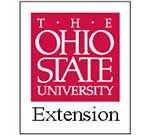|
|
 |
 |
OSU Extension
to offer Beef Quality Assurance Certification
What is Beef Quality Assurance (BQA)?
BQA is a nationally coordinated, state implemented program that
provides systematic information to U.S. beef producers and beef
consumers of how common sense husbandry techniques can be coupled with
accepted scientific knowledge to raise cattle under optimum management
and environmental conditions.
Register by December 3 at 937.548.5215, for the training that will take
place in the OSU Learning Center at 603 Wagner Avenue, Greenville,
Ohio. Trainings will take place at 12:30 pm or 2:00 pm. To
register call at 937.548.5215 or email custer.2@osu.edu.
BQA is certainly not a new program. The precursor to BQA, “Beef Safety
Assurance”, originated in the late 1970’s and through the 1980’s
emphasized targeting real and perceived beef safety issues. The primary
emphasis of the program was educating stakeholders about the proper use
of pharmaceutical products and the honoring of withdrawal times. BQA
programs as we know them today began in the early 1990’s.
Current BQA programming is expanding with information to help producers
implement best management practices that improve both quality grades
and yield grades of beef carcasses. USDA Quality Grading is a composite
evaluation of factors including carcass maturity, firmness, texture,
and color of lean, and the amount and distribution of marbling within
the lean. These factors affect the palatability of meat. USDA Yield
Grading show differences in the total yield of retail cuts. Yield
grades estimate the amount of boneless, closely trimmed retail cuts
from the high-value parts of the carcass – the round, loin, rib and
chuck.
While the target audience for BQA educational programs is the producer,
the ultimate priority is today’s consumer. In addition to helping the
producer add value to their market animals, BQA can help build a
positive public image and instill consumer confidence in the beef
industry. If the beef industry produces a quality beef product, it can
meet the consumer’s expectations for eating and preparation
characteristics. The government is also the beef industry’s partner in
this process by providing inspection services that help insure a safe
and wholesome product that is correctly labeled and packaged.
If you have been following the national agricultural press or Extension
program offerings over the past several months, it is hard to miss that
there has been a significant increase in interest in the Beef Quality
Assurance (BQA) program. This has become a reality because consumers
are concerned for animal health and the sustainability of the system
that their food comes from.
How important is the voice of the consumer? Their concerns have
resulted in Tyson Foods, who harvest and process 25% of the U.S. beef
market share, and also Wendy’s, now the second largest fast food
hamburger chain in the U.S., both announcing that beginning in 2019
they will be sourcing beef from producers who are Beef Quality
Assurance certified. The consumer’s voice is being heard and it is
influencing how we implement our management practices at the farm level.
In response, Ohio State University Extension is working in cooperation
with the Ohio Beef Council, the Ohio Cattlemen’s Association and Ohio’s
cattle auction markets and collection points to offer Ohio’s cattlemen
several opportunities to become Beef Quality Assurance certified. Thus
far in 2018, approximately 1,500 individuals in Ohio have become BQA
certified. For those looking for more information on BQA, head to the
OSU Extension Beef Team’s web page located at: http://beef.osu.edu/ .
Click on the “BQA” tab at the top of the home page to see a listing of
certified BQA instructors across the state. You can also click on the
“Events/Programs” tab to find a listing of BQA programs and other
events scheduled across Ohio.
There is also a national Beef Quality Assurance web site located at:
https://www.bqa.org/ . You can become BQA certified through online
training opportunities at this web site. Depending on your particular
area of interest, you can become BQA certified with an emphasis in one
of the following areas: Cow-Calf, Stocker, Feedyard, Dairy, or
Transportation. Once you have attended a BQA training event in person
or completed an online certification course, you will receive a
personalized card with information that verifies your certification
status.
I am excited that OSU Extension’s Beef Team, the Ohio Beef Council, and
the Ohio Cattlemen’s Association have joined forces to emphasize the
importance of beef producers becoming BQA certified. It is a logical
step for producers to take towards the goal of producing quality beef
for today’s consumer. However, all beef producers need to realize that
quality is not just a name in the BQA title.
BQA is much more than knowing the proper way of giving vaccinations in
the animal’s neck. Quality should be a priority in every step of the
beef production system. This includes management decisions relating to
herd health, nutrition, animal handling, reproduction, genetics, and
marketing.
There are those individuals that will pursue the easiest or simplest
methods to raise and market beef to the consumer. Unfortunately, I do
not believe that is a sustainable business model for the beef industry.
The consumer is becoming increasingly particular as to how they spend
their dollars for several different sources of protein. They want a
safe, wholesome product with excellent nutritional value for the dollar
spent and provides great taste. If the beef industry emphasizes quality
at every angle of production process, we will have a very satisfied
customer!
For more information about OSU Extension, Darke County, visit the Darke
County OSU Extension web site at www.darke.osu.edu, the OSU Extension
Darke County Facebook page or contact Sam Custer, at 937.548.5215.
|
|
|
|

